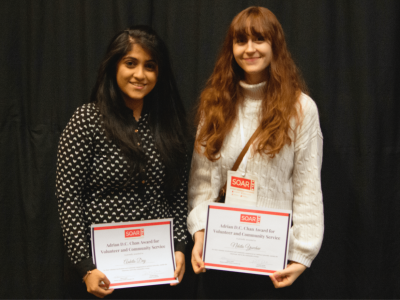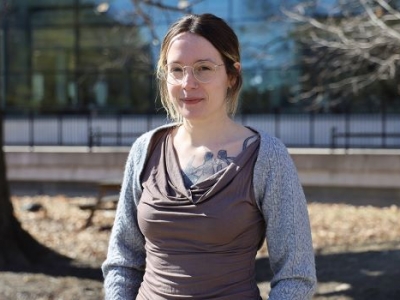Thousands of students from 20+ countries apply each term to be selected to be part of the MLH Fellowship. Fellows selected are matched to open source projects and with their peers, learn to contribute to these codebases. Sponsors of this program have included companies such as Meta (Facebook), The Royal Bank of Canada, Amazon Web Services, and about 20 others.
 One of this spring’s MLH Fellows is Daman Arora, a master’s student in the Technology Innovation Management (TIM) program who is working towards a Master of Applied Business Analytics (MABA) degree.
One of this spring’s MLH Fellows is Daman Arora, a master’s student in the Technology Innovation Management (TIM) program who is working towards a Master of Applied Business Analytics (MABA) degree.
Arora notes: “MLH has uniquely structured this program to be an alternative to the traditional internships, as it pairs a fun and educational curriculum with real world practical work experience that participants can add to their resume right away and stand out.”
There are three different program tracks, and Arora’s 12-week fellowship is part of the Open Source track.
Shares Arora: “During the fellowship which runs from Feb. to April, I will make code contributions to some real-world, open-source project(s) which are selected by MLH and/or one of their corporate, government, or non-profit partners. It is highly likely I will work on a project hosted by Solana Labs.
Based on his experience level, MLH will match him with a Pod, a group of approximately 5-10 other Fellows from around the world. Each pod has a Pod Leader – these are skilled experts in the software engineering and technology field and typically, alumni of past programs. Pod Leaders serve as an educational and technical resource.
Before coming back to Carleton to start his graduate degree, Arora worked as a Data Engineer (Intern & Full Time) in the Cloud and Cognitive Science business unit of IBM Canada wherein he assisted clients to use data visualization technology to predict future business outcomes. He has been contributing to Open Source for over a year, and was chosen as a Community Advocate for Ambassador Labs who have donated multiple open source projects to the Cloud Native Computing Foundation.
Arora also co-authored a research paper on leveraging Natural Language Processing, a machine learning technique, to categorize the market offers of innovative digital health companies.
His research for his TIM degree is also noteworthy. He is looking at scaling reinforcement learning systems to be cost-effective. One of the outcomes will be a Machine Learning Operations system comprised of open-source tools and technologies that could be utilized by technology entrepreneurs launching and growing new startups.
Arora explains: “My research intends to provide a framework of tools and best practices to architect the data workflows and the cloud infrastructure for Machine Learning models that can easily scale and handle massive volumes of raw information yet be cost effective.”
The grad student is grateful for the mentorship he has received from his supervisor, Dr. Michael Weiss. “Professor Weiss is passionate about the use of open source and machine learning techniques to solve problems related to business ecosystems. He has published many research papers and developed software applications. Since my research project relies heavily on using open source and machine learning, I feel very relaxed working under his guidance as I can have deep technical conversations about this project and use his expertise where required.”
Arora appreciates the knowledge and experience he is gaining from the TIM program.
“The TIM program has equipped me with the technical and business knowledge, skills, and experience to move ideas and innovations into commercial practice. It has helped me become an expert problem solver by learning how to define a clear and concise problem statement and then leverage existing literature to find answers. Since I could do multidisciplinary courses at the TIM Program, I feel I am now ready to pursue a wide variety of careers, including venture creation and innovation-focused roles – most likely in the technology sector.”
Wednesday, February 9, 2022 in Awards, Grad Student Research, News
Share: Twitter, Facebook




